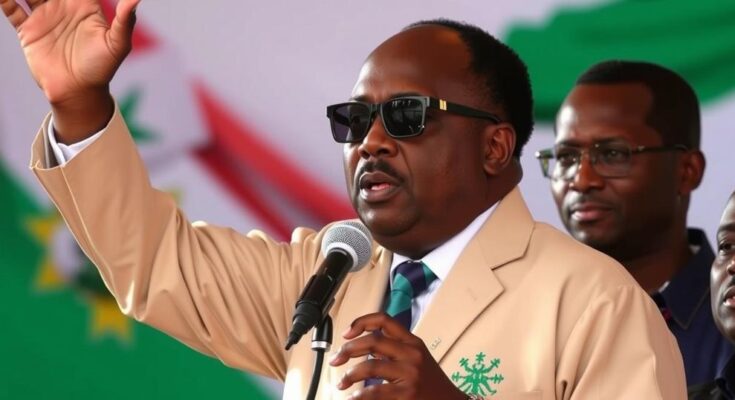Chad’s ruling Patriotic Salvation Movement party won 124 of 188 seats in the parliamentary election held last month, boycotted by major opposition parties. Analysts predict this victory will strengthen President Mahamat Idriss Deby’s political power, amid ongoing challenges regarding security and governance in the country as it transitions towards democracy.
Chad’s ruling party, the Patriotic Salvation Movement (PSM), has secured a significant victory in the recent parliamentary elections, winning 124 out of 188 seats. This election, which marked Chad’s first parliamentary vote in over a decade, saw a voter turnout of 51.5%. The elections occurred in a context where major opposition parties, including the Transformers party led by Succes Masra, abstained from participation, terming the process a mere ‘charade.’ Analysts have indicated that the outcome is likely to strengthen President Mahamat Idriss Deby’s grip on power, particularly following his ascension to authority as a military leader in 2021 after the death of his father, the long-standing president Idriss Deby Itno.
The parliamentary elections, which also included regional and municipal contests, represent a critical phase in Chad’s transition towards a democratic governance structure as asserted by President Deby. He posited that the elections would allow for much-needed decentralization and power distribution to local levels of government. The boycott by opposition factions, who raised concerns about the credibility of elections, reflects a challenging political atmosphere, particularly given the backdrop of Chad’s multi-faceted security concerns, including threats from Boko Haram and a shift in relationships with traditional allies like France.
Chad has faced significant political turbulence and security challenges in recent years. Following the death of longtime President Idriss Deby Itno in April 2021, his son Mahamat Idriss Deby took control, promising a transition to democracy while maintaining a tight grip on power. The recent parliamentary elections represented a pivotal moment, coming after a decade in which no parliamentary elections were held. However, the atmosphere remains charged, with opposition parties expressing skepticism about the electoral process and governance under the current regime. This sets the stage for ongoing debates about legitimacy and representation in Chad’s political landscape.
The recent parliamentary elections in Chad reveal the continuing dominance of the ruling party amid significant opposition boycotts, highlighting prevailing concerns regarding electoral integrity and government accountability. While the ruling Patriotic Salvation Movement has emerged as a formidable force, the exclusion of key opposition parties raises questions about the legitimacy of the electoral process. This victory allows President Mahamat Idriss Deby to fortify his power further, as the country grapples with pressing security issues and the promise of democratic governance remains uncertain.
Original Source: abcnews.go.com




